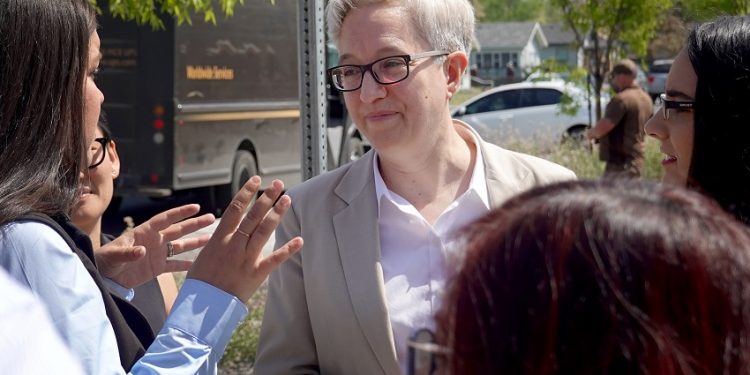Astoria, OR – Oregon Governor Tina Kotek has issued an executive order permitting the Port of Morrow to dump nitrate-rich wastewater onto agricultural fields in the Lower Umatilla Basin until the end of February. The decision, made in response to a looming storage capacity issue, has raised concerns due to the region’s ongoing drinking water crisis linked to high nitrate levels in the groundwater.
In her statement, Kotek explained that the wet winter, combined with expected rain and freezing conditions, would likely push the port’s wastewater storage beyond capacity. If this occurred, the port, a critical hub for food processors and other local industries, would be unable to accept wastewater from businesses in the area. The executive order, which temporarily lifts restrictions on wastewater disposal during the winter months, comes with strict limitations to minimize contamination risks. Under the order, wastewater can only be applied to agricultural fields deemed to have “low risk” of contaminating drinking water sources.
Kotek stressed the economic consequences of halting operations, citing that thousands of local jobs would be at risk and that halting industrial operations, even temporarily, could devastate the region’s economy. “We must balance protecting thousands of jobs in the region, the national food supply, and domestic well users during this short period of time during an unusually wet winter,” she said.
Morrow and Umatilla counties are key to Oregon’s agricultural production, and the local economy relies heavily on industries like food processing. However, for over three decades, nitrate contamination from agricultural runoff, particularly from fertilizers and wastewater, has seeped into the region’s groundwater. Many local residents rely on private wells for drinking water, and studies show that nitrate levels in these wells are often four to five times higher than the federal safety limit of 10 milligrams per liter, posing significant health risks.
Despite the Port of Morrow’s wastewater system being a relatively small contributor to the contamination, the port has faced substantial penalties for violating its environmental permits. The Oregon Department of Environmental Quality (DEQ) has fined the port at least $3.1 million and continues to monitor the situation closely. In response to the ongoing issue, the port has committed to investing $500 million to upgrade its wastewater infrastructure by the end of 2025.
Kotek’s decision to issue the executive order comes after months of pressure from local environmental groups and residents who have urged the state to take more aggressive action to address the persistent nitrate contamination. Although the state has implemented a multi-agency Nitrate Reduction Plan outlining long-term solutions to reduce nitrate levels, many locals feel that more immediate action is necessary.
While the port’s temporary ability to disperse wastewater may alleviate short-term logistical challenges, the situation underscores the complex tension between economic concerns and public health. Environmental justice organizations argue that stronger regulation is needed to protect residents who are exposed to unsafe drinking water levels. Many wells in the area are unmonitored by the state, leaving residents without a clear picture of their water’s safety.
During her visit to the region in May 2023, Governor Kotek refrained from declaring a public health emergency, stating that the focus should be on meeting the immediate needs of the community, such as well testing and water deliveries. However, her decision to issue the emergency order highlights the ongoing difficulty in balancing the needs of both local industries and residents who face a deteriorating water quality crisis.
As the state looks to address this long-standing issue, the Port of Morrow’s commitment to improving its wastewater management system will play a central role in mitigating future risks. However, with many local residents already suffering from unsafe drinking water, it remains to be seen whether this temporary measure will be enough to ease public concerns in the coming months.













